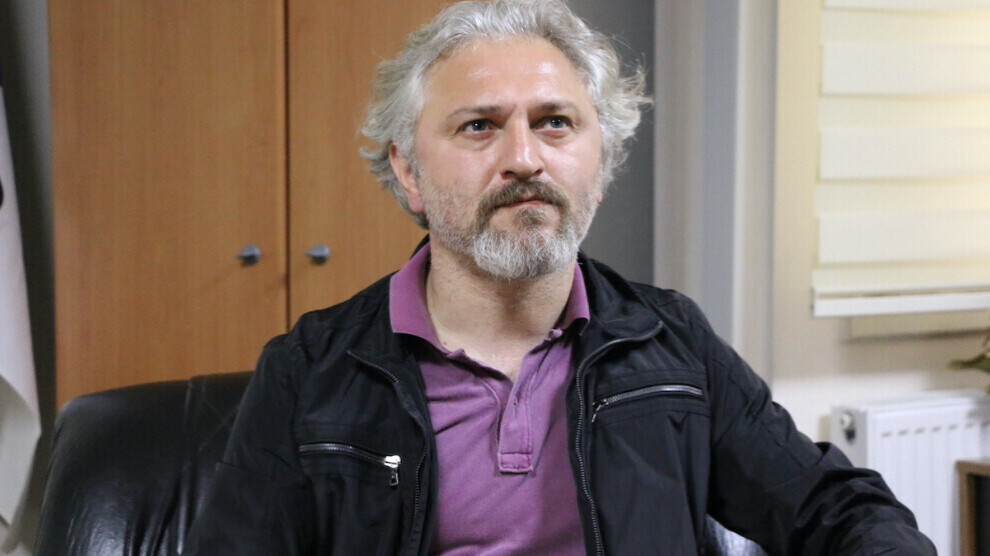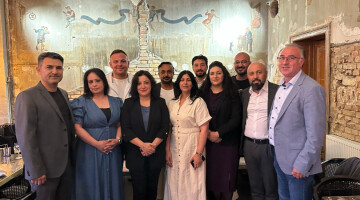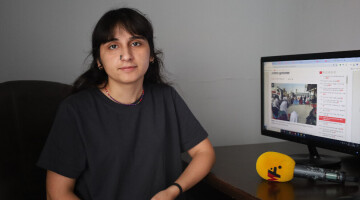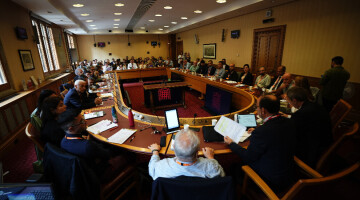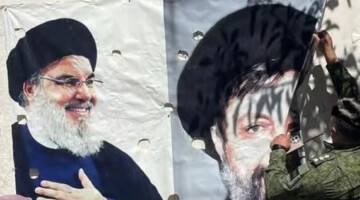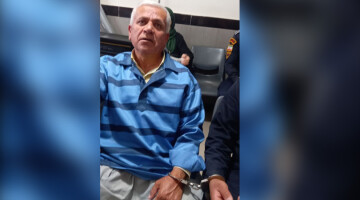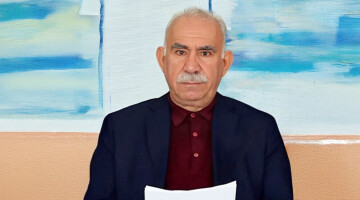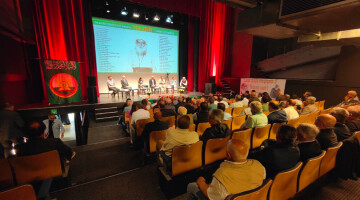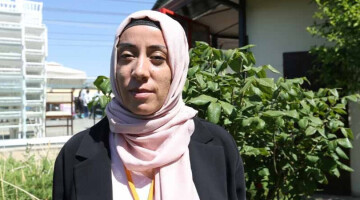HDP İzmir MP Murat Çepni remarked that the state responded to the earthquake very late and seized the aid organized by non-governmental organizations. He added that the government regarded the aid mobilization as a threat to itself.
ANF interviewed Çepni as he continued to help the earthquake victims in Malatya on the 11th day of the devastating earthquake on February 6. The HDP deputy stated that Doğanşehir and Akçadağ districts and villages suffered from major destruction. “There has been massive destruction and deaths in the centre of Malatya and Akçadağ. There have been huge casualties in the villages as well. Of course, the destruction in the villages is slightly different from the cities. For example, there were also problems with transportation to villages due to the snow and the freezing temperatures at nights. Furthermore, aid materials were delivered to the villages very late. The victims struggled against both the earthquake and the cold weather.”
GOVERNMENT BLOCKS AID ORGANIZATIONS
Çepni said that his party has faced many obstacles from the government since it arrived in the earthquake-hit areas. He remarked: “Immediately after the earthquake, we went to the affected areas. Aid trucks from all over Turkey were unloaded in our warehouses and we delivered them to the villages we visited. This work is still ongoing. Yet, the government is blocking our efforts. For example, tents are confiscated, but it is not known where they are sent to. Sometimes, the earthquake survivors bring materials from the surrounding provinces on their own. They, too, are confiscated and prevented. The state, which was not fast enough to save lives, regards the non-governmental aid as a threat to itself.”
PEOPLE COULD HAVE BEEN SAVED EVEN WITH BARE HANDS
Çepni emphasized that if the state had supported the solidarity of the people in Malatya, as in many other cities, there would not have been a huge death toll. He continued: “In villages, people were trapped under old single-storey village houses. Normally, the state has the capacity to reach here quickly with its own forces. In other words, if the state had been able to reach these villages with tools, equipment and manpower, these people could have been rescued even with bare hands. This was not done. State institutions reached here almost on the 4th day. Contrary to the state propaganda, if there were no voluntary organizations, the death toll would have increased even more. Therefore, the state considers the elimination of its own shortcomings by the people as a matter of survival.”
DISASTER IS POLITICAL
Çepni stressed that the earthquake turned into a disaster due to the bad policies of the government. He concluded: “The disaster stemmed from political choices. This is not a natural disaster. This is the result of the state's unpreparedness, lack of plans, rejection of scientific facts and the policy of disorganizing the people. The corrupt policies of the government led to this disaster. The issue is not just the heating and shelter problems of the victims. The issue of how these destroyed cities will be rebuilt is also important. The government says that it will do it within a year. It still regards the matter as a construction issue. However, it may take a year to examine and scientifically analyse the destruction. Is the government going to build these cities in places where earthquake fault lines pass? Will it rebuild cities elsewhere? All these issues need to be understood and explained. Therefore, we aim to discuss the reconstruction process in cooperation with scientific institutions, scientists and democratic mass organizations. The HDP will bring all these issues to the agenda.”

